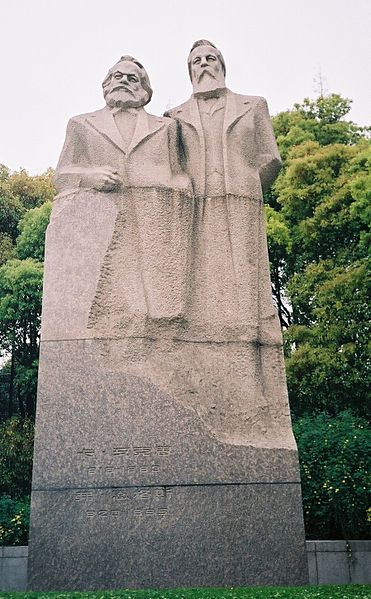Generations of Chinese leadership
Generations of Chinese leadership is a term historians use to characterize distinct periods of the leadership of the Chinese Communist Party (CCP) and, by extension, successive changes in the ideology of the CCP. Historians have studied various periods in the development of the government of the People's Republic of China (PRC) by reference to these "generations".
Simplified Chinese graphic timeline of CCP leadership to 2012. The red bar indicates CCP General Secretaries, the yellow indicating the Premiers. The gray bar delineates particular periods of mainland Chinese history from a CCP perspective.
The Chinese Communist Party (CCP), officially the Communist Party of China (CPC), is the founding and sole ruling party of the People's Republic of China (PRC). Under the leadership of Mao Zedong, the CCP emerged victorious in the Chinese Civil War against the Kuomintang. In 1949, Mao proclaimed the establishment of the People's Republic of China. Since then, the CCP has governed China and has had sole control over the People's Liberation Army (PLA). Successive leaders of the CCP have added their own theories to the party's constitution, which outlines the party's ideology, collectively referred to as socialism with Chinese characteristics. As of 2023, the CCP has more than 98 million members, making it the second largest political party by membership in the world after India's Bharatiya Janata Party.
Site of the first CCP Congress, in the former Shanghai French Concession
Chinese communists celebrate Joseph Stalin's birthday, 1949.
A temporary monument displayed in Changsha, Hunan Province, to celebrate the 100th anniversary of the CCP's founding
A monument dedicated to Karl Marx (left) and Friedrich Engels (right) in Shanghai





